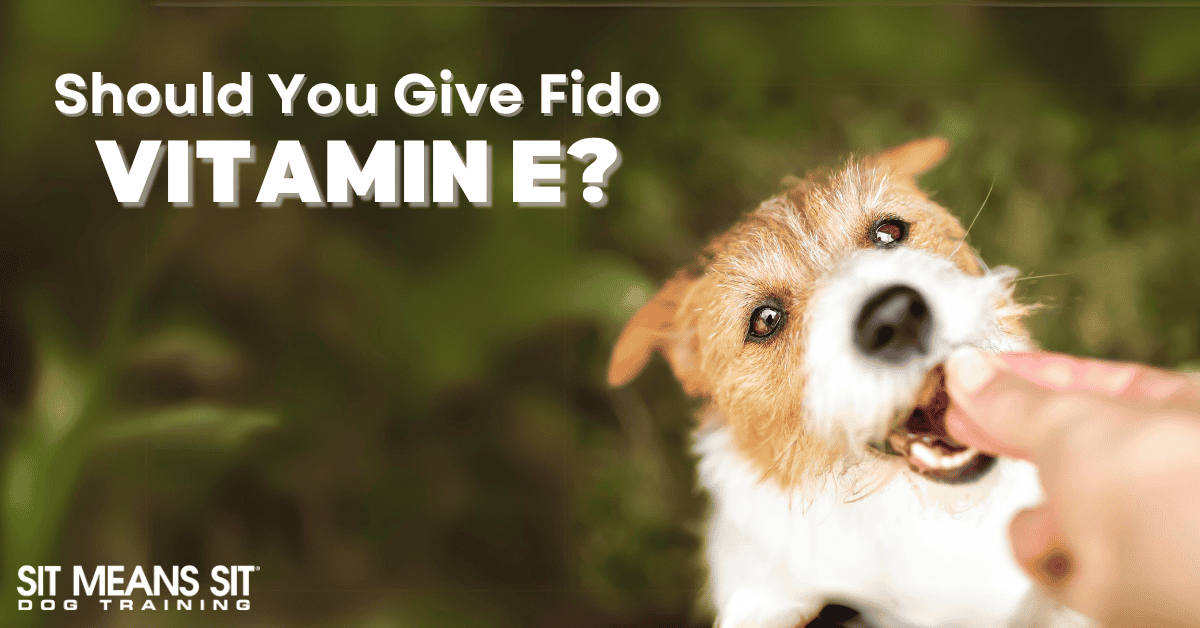You probably already know how important vitamins are for your own health, but have you ever thought about how they affect your dog? One key nutrient that often flies under the radar is vitamin E. It helps protect your pup’s body from damage, supports their immune system, and keeps their skin and coat in great shape. Here’s what to know about why it matters and whether your dog might need more of it.
Benefits of Vitamin E for Dogs
Vitamin E plays a major role in your dog’s health, mainly by acting as an antioxidant that helps protect cells from damage caused by free radicals. These unstable compounds can build up from things like illness, aging, or environmental toxins, and may contribute to issues with the heart, joints, immune system, and more.
Vitamin E helps combat this by supporting everything from brain and eye function to healthy skin, muscles, and a shiny coat. It also plays a part in fat metabolism and cell repair, making it an important nutrient for keeping your pup feeling their best as they grow and age.
Does My Dog Need Vitamin E Supplements?
In most cases, dogs do not need vitamin E supplements. If your dog eats a complete and balanced diet, they are likely getting all the vitamin E they need. Commercial dog foods that meet nutritional standards are already formulated with the right amount, so there’s usually no need to add more.
However, some dogs may benefit from supplements, especially if they have specific health issues like dry skin or allergies, or your vet suspects that they’re Vitamin E deficient. Vitamin E deficiency in dogs is uncommon, but it may show up as muscle weakness, dry or flaky skin, frequent illnesses, low energy, vision problems, or changes in behavior. Even if you think your pup could benefit from Vitamin E supplements, be sure to check with your vet before starting anything new.
Can Vitamin E Supplements Be Dangerous?
It’s important to be careful when giving your dog Vitamin E supplements, as over-supplementation can be dangerous and lead to vitamin overdose. Some signs of too much vitamin E include vomiting, diarrhea, and changes in energy or behavior. In more serious cases, it can interfere with canines’ ability to clot blood properly and cause pups to bleed more easily. A dog experiencing a vitamin E overdose may also have fevers, changes in elimination, and a different appetite.
That’s why it’s so important to get guidance from your veterinarian before using any supplements. Vitamin E is generally safe and beneficial for dogs when used properly, but it’s not something you should guess on. If you’re concerned about how much Vitamin E your dog is getting in their diet, consult your vet to discuss what’s right for your pup.
How to Add Vitamin E to Your Pup’s Diet
There are two main ways to add Vitamin E to Fido’s diet without supplements.
Choosing Dog Food with Enough Vitamin E
The easiest way to make sure your dog gets enough vitamin E is by feeding them a high-quality food. Most commercially-manufactured foods already include the proper amount, meaning you don’t need to worry about monitoring Fido’s intake.
If you’re unsure which dog food brands contain enough vitamin E, look for any commercially available foods that meet the Association of American Feed Control Officials (AAFCO) standards. Brands that meet this standard confirm that their food contains at least the minimum amount of vitamin E for a healthy canine.
Foods Rich in Vitamin E to Add to Fido’s Diet
If your vet recommends trying to boost your dog’s vitamin E intake, you can add foods high in vitamin E to their diet. Some dog-friendly foods that are high in vitamin E include eggs, salmon, spinach, sweet potatoes, legumes, and broccoli. Certain forms of dog-friendly oil, such as sunflower, soybean, safflower, and wheat germ oil, are also rich in vitamin E. These can be added in small amounts as treats or meal toppers. As always, talk to your vet before making any major changes to your dog’s diet.
Vitamin E might not be the first thing that comes to mind when you think about your dog’s health, but it plays a large role in keeping your furry friend healthy. Most dogs get plenty of it through a balanced diet, but in some cases, a little extra support can go a long way. If you’re thinking about making changes to your dog’s diet or adding a supplement, it’s always best to check in with your vet first.
Check Out These Posts for More Tips on Canine Supplements!
Should I give My Dog Omega-3 Supplements?

